14 Scenes From Movies And TV That Made Us Cry In 2017
We did a lot of crying this year, and sometimes it had nothing to do with the news. (Warning: Spoilers ahead.)
1. Elio’s father’s monologue in Call Me by Your Name
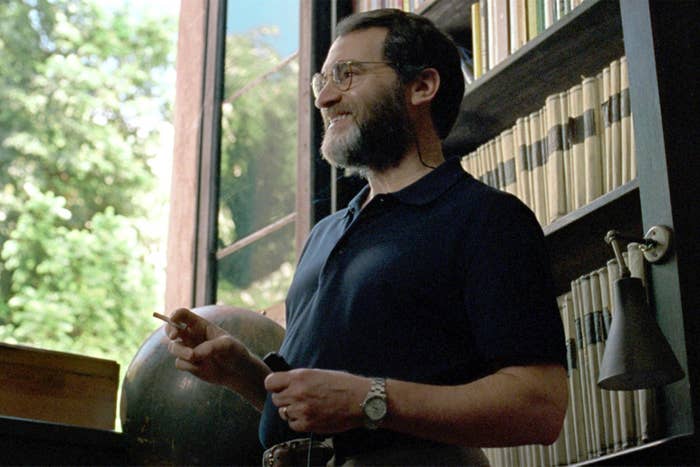
Elio (Timothée Chalamet) and Oliver (Armie Hammer) have already parted ways by the time Elio’s father, Mr. Perlman (Michael Stuhlbarg), sits his son down for a talk, and I was pretty sure I was all cried out. What follows is a monologue that cut me to my core, an unbearably honest reflection on the importance of feeling everything — the highs and the lows — that is both profoundly beautiful and gutting. “We rip out so much of ourselves to be cured of things faster that we go bankrupt by the age of 30 and have less to offer each time we start with someone new,” Elio’s father tells him. “But to make yourself feel nothing so as not to feel anything, what a waste.” By the end of the speech, Elio is crying again, and I found myself sobbing harder than I had at anything that came before. “Right now there’s sorrow, pain,” Mr. Perlman says. “Don’t kill it — and with it, the joy you’ve felt.” Noted, I thought, gasping for air. —Louis Peitzman
2. When Issa and Lawrence finally get closure after their breakup in Insecure
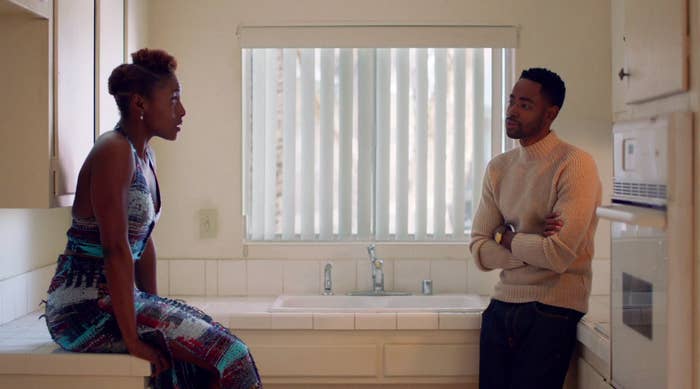
Part of what makes HBO’s Insecure so special is its hella accurate portrayal of the trials and tribulations of dating while black in the year of our Lord 2017. In Season 2 we watched Issa and Lawrence, the couple we spent much of Season 1 rooting for, try to unravel from each other after a bad breakup. They tried to drink it away, dance it away, work it away, sext it away — the whole thing was like a Solange song and/or SZA album. When none of the distractions worked, and they found themselves face-to-face, it led to the showdown from hell that had group chats and Twitter timelines lit across the country. But none of the over-the-top theatrics or under-the-belt shade from that moment compared to the bittersweet final scene between them in the season finale perfectly titled “Hella Perspective.”
In the scene, the two sit in the kitchen of the empty apartment they once shared, for the very last time before handing in their keys, to have “the closure talk” that every breakup deserves but doesn’t always get. Lawrence apologizes for shutting down when his professional plans didn’t shape up and he couldn’t provide for them the way he wanted to. Issa apologizes for not knowing how to be there for him during his depression. And then she addresses the elephant in the room, the ultimate cause of their demise — her cheating on him with her ex-boyfriend. In was in that moment that she says the words that broke me, Lawrence, and probably anyone who has ever betrayed or been betrayed by someone they loved: “I wish I could somehow convince you that it wasn’t about you. You’ve only ever loved me and expected me to want the best for you and I promise I did.”
WHEW. And then, as if emotions weren’t already high, they exchange one of the purest, most tragic kinds of "I love you" — the one that comes at the end of a relationship where you know the love is real, but you also know it’s not enough. The entire scene was so authentic, it was almost cathartic. Whether you were sobbing because you could recall a similar breakup conversation or because those were words you never got but always needed to hear, the tears were inescapable. —Sylvia Obell
3. The ending in Coco
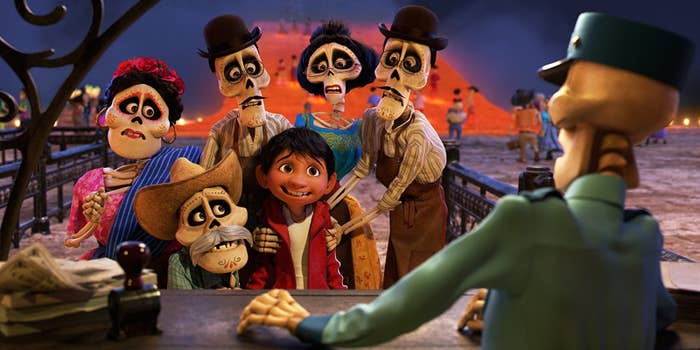
When I was on vacation in Florida in 2006, I saw the Adam Sandler “comedy,” Click, sitting next to my father, probably the most important person in my life at that moment. I left the theater hysterically crying after being subjected to a scene where Sandler is rewinding his father’s last words over and over again because he had skipped too far past his life to have a chance to save him. I was so thankful I was in Florida, away from the kids from school who would’ve relentlessly teased me for shedding a tear. I thought that would be a singular experience, and for the rest of my life, if a movie made me cry it would be only one respectable, masculine tear.
Of course that ended this year when the conclusion of Coco fucking shattered me into a million little pieces. I sat next to my grandmother, who is going through some health issues, as I watched the protagonist Miguel sing the lullaby “Remember Me” to his bisabuela Coco, so — SPOILER ALERT — her father would survive in the spirit world through her memory long enough for them to be reunited when she passes the next year. I thought about how precious the moment was, getting to experience this with my grandmother, and finally feeling represented by Disney as Latinx Americans. I also thought about all the family in my life who were so vital to my parents’ adolescence whom I never got to meet, but stay alive through the memories my family shares with me.
The ending of Coco reminded me of my abuelo, who died in the '80s from medical malpractice, but lives on every time one of his sisters sees him in my face, or my own great-grandmother, who passed away just a few months short of the wedding she always promised my dad she would dance at — a promise my dad now makes to me. I was bursting with emotions again, this time at my hometown theater where those same kids from school (now young adults) still might be able to run into me crying, but now I felt good about having a relationship with my family strong enough to relate to the central themes of the film. Still, though, I sprinted to my car after leaving the theater to sob in hiding. —Marcus Jones
4. When Midge settles on her stage name in The Marvelous Mrs. Maisel
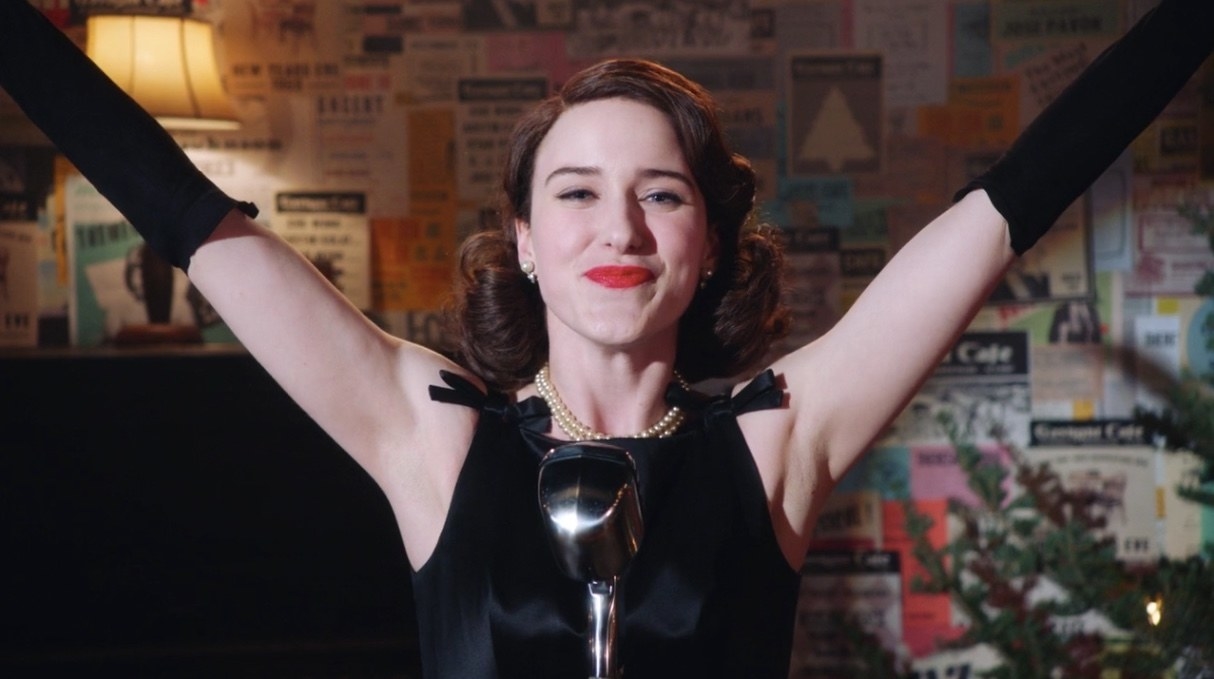
Throughout the terrific first season of Amy Sherman-Palladino's Amazon series, Midge (Rachel Brosnahan) toys with various professional names in the same way that she toys with the idea of committing herself wholeheartedly to comedy and leaving behind for good the dream of the Upper West Side married life she once had her heart set on. Hiding behind terrible noms de plume ("Fanny... Brice?" she suggests once, only to be reminded "that's taken") is a way of keeping one foot uptown in the familiar confines of her parents' classic six, and one in the smoky downtown club in which she's started to find her voice as a stand-up. Midge doesn't want to have to choose. She still loves Joel (Michael Zegen), total vintage fuckboy that he is, even if she's also falling in love with what it's like to be in the spotlight instead of just playing the supportive spouse.
The big question of the first season is whether Midge will be able to kick off a career in comedy, but coming a close second is the question of whether Midge will take Joel back, and whether he'll be able to handle the fact that Midge is no longer the perfect housewife she was when they were together — that, as she puts it, "he might not like the new me." The way these two dramas come together in the season's final sequence is perfect enough to bring a tear to the eye in itself. But then there's that moment when, after blowing the roof off the Gaslight Café, she thanks the crowd and introduces herself as "Mrs. Maisel" — her married name, the real life role of the wife and the comic persona clicking together just as Joel stumbles off into the night feeling stunned by both her secret and his own feelings of betrayed inadequacy. Midge's triumph is so intensely bittersweet, marked by the realization that she wants it all just as it seems that she won't actually be able to have it. —Alison Wilmore
5. The ending in The Handmaid's Tale
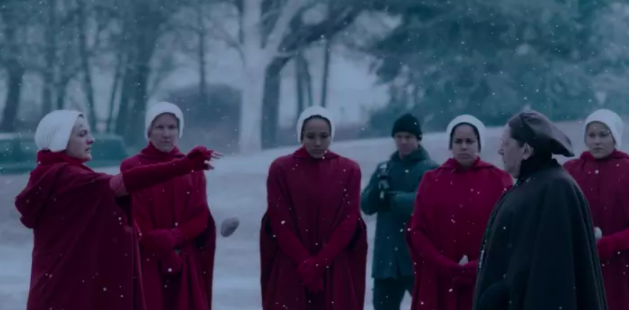
The Season 1 finale of The Handmaid's Tale had a number of emotional moments, including the ending, when June (Elisabeth Moss) is taken out of the Waterfords' home (to go who knows where). And several of those moments certainly caused to me well up. But I cried like hell in one scene in particular: The Handmaids are summoned to a Particicution and are told by Aunt Lydia (Ann Dowd) that they must stone their fellow Handmaid Janine (Madeline Brewer) to death for the sin of endangering her baby. (In the previous episode, she had threatened to jump from a bridge with the baby, but June talked her down.) It wasn't great what Janine did! And there were sure to be consequences. But to be executed by her own? Even Aunt Lydia has qualms about it.
The scene is a mirror image of the Particicution we saw in the pilot, in which June gets way too into kicking a man to death for a crime he may or may not have committed. So when June is the first to drop her rock that's meant to stone Janine — and the rest of the Handmaids follow suit — it reflects how much she's changed. (And lo, the tears did flow.) But this group of Handmaids has changed too. As June points out in voiceover, when they first met each other, they were terrified — but, she says, "we don't look at each other that way anymore." The whole scene offers hope that they can come together, which surely will happen in the future. Rise up, ladies! —Kate Aurthur
6. The Ravager funeral in Guardians of the Galaxy Vol. 2
I've felt a lot of things watching Marvel Studios movies over the past nine years, but I never expected to openly weep the way I did at the end of Guardians Vol. 2. First, we watch Peter Quill (Chris Pratt) witness the only father figure he's ever known, the irascible and disgraced space pirate Yondu (Michael Rooker), die to save his life. Then, back safely on his ship, Peter flicks on "Father and Son" by Cat Stevens, as Yondu's fellow Ravagers congregate to pay their respects with a shockingly brilliant display of fireworks. And then Rocket (voiced by Bradley Cooper) — an antisocial, anthropomorphized raccoon — stares up at the brilliant display, moved beyond his ability to reckon that Yondu's friends would honor him even though he had been such an asshole. Oh, and throughout, Baby Groot hops from the shoulder of each of the Guardians, doing adorable baby things like hug and yawn and fall asleep. I know the scene is engineered to provoke my tears, but I've grown so fond of these space-faring ne'er-do-wells that each tear feels totally earned. In fact, I just watched it again, and wept anew. —Adam B. Vary
7. When Marion refuses to say goodbye to Lady Bird in Lady Bird
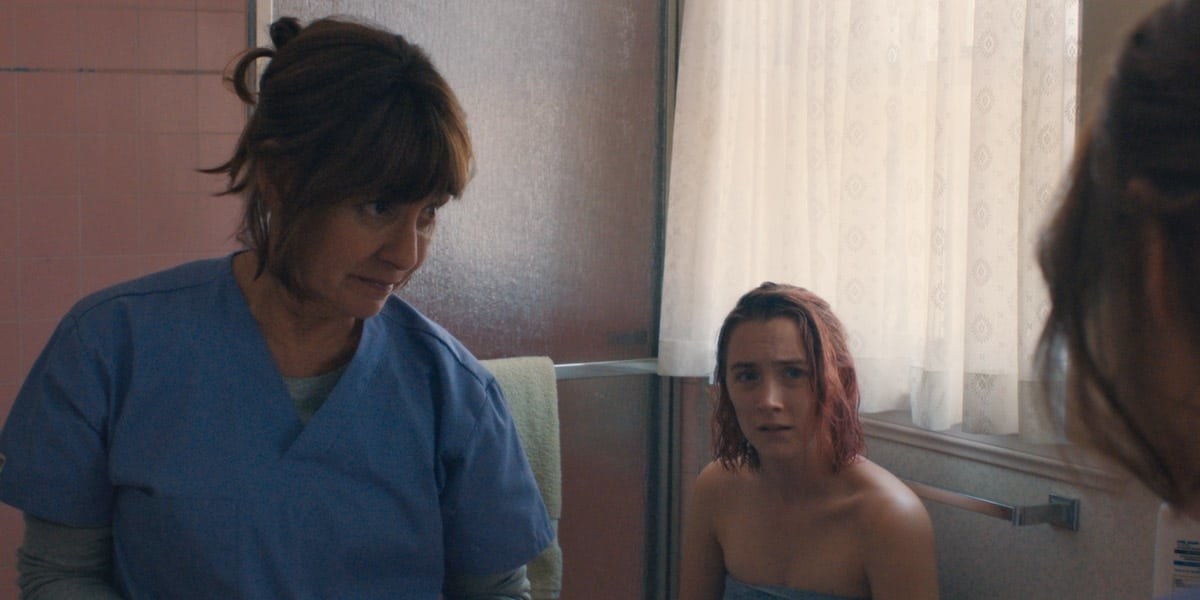
Much of the way Greta Gerwig’s Lady Bird presents the fights between mother (Laurie Metcalf) and daughter (Saoirse Ronan) is gutting. They jab at each about how they perceive the other’s faults, and they do it with such incisive intimacy that you walk away feeling like you’ve just had a fight with your mom. So by the time we get to the end of the film, when (spoiler alert) Lady Bird’s parents are dropping her off at the airport for her first year at NYU, I’d been rubbed raw. And when Marion finds herself stubbornly unable to get out of the car to say goodbye to her daughter, my heart caved in a little.
The brilliance in Lady Bird lies in its depictions of the very real emotional limitations that populate so many relationships — especially those tied to your own identity. Sometimes, in life, someone very important to you won’t be able to open themselves up to give you what you need from them. Sometimes, you might be that person who is limited. I don’t know if I’d ever seen that feeling expressed so eloquently in a film before Lady Bird. Marion can never take back not saying goodbye to her daughter on her way to college. She can never take back the hurt it caused her daughter, or herself. But in that moment, the film demonstrates such a deep empathy for both of those characters that I’m tearing up even writing about it now. —Alanna Bennett
8. The “White Rock” episode of Better Things
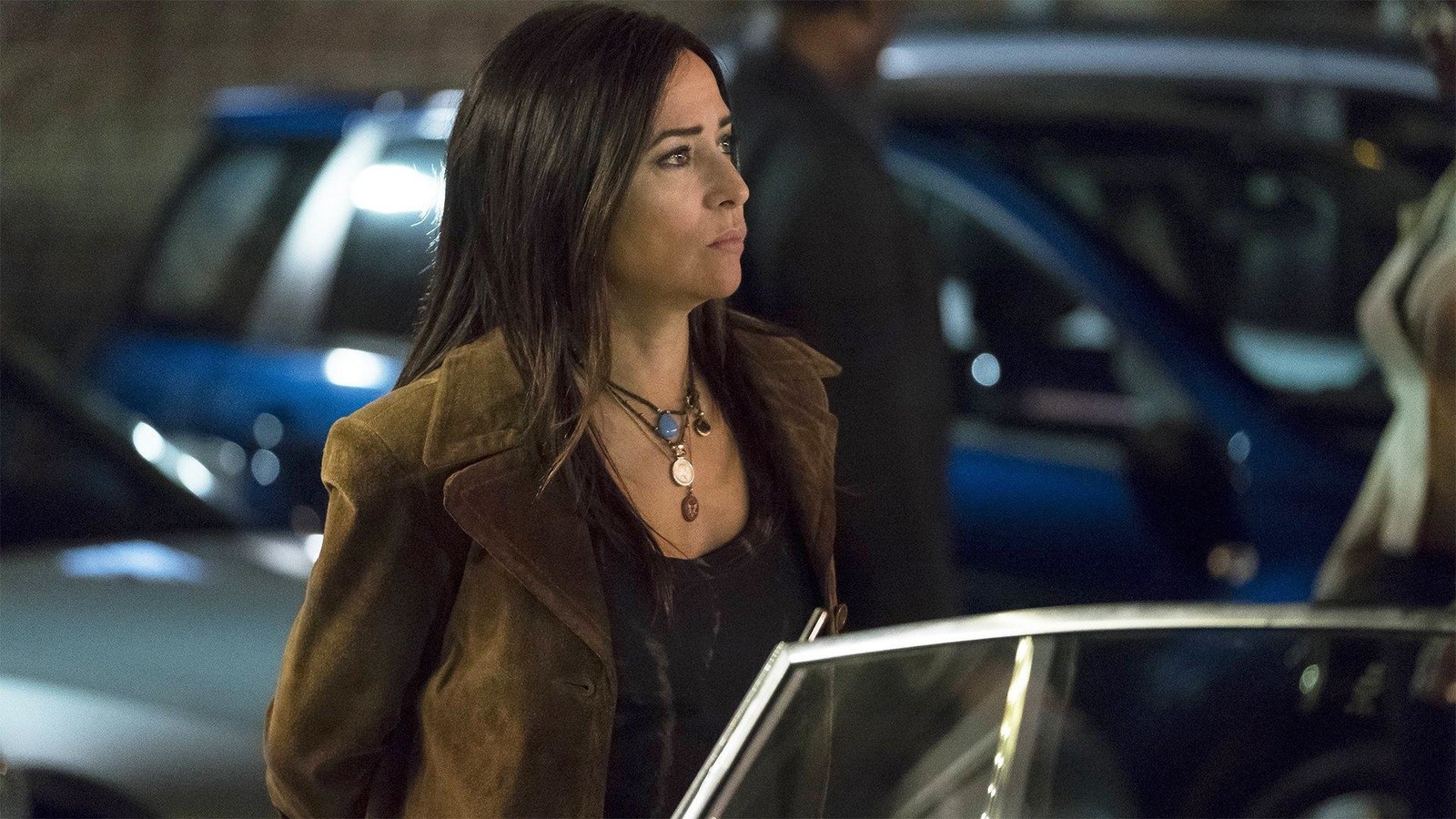
One of the strengths of Pamela Adlon’s critically adored but somehow still underrated series is the way it consistently catches you off guard. Despite being a comedy, the show has never shied away from a vast emotional spectrum, delivering on the very real pathos of Sam’s (Adlon) life as a single mom, working actor, and struggling dater. But the episode “White Rock,” in which Sam and her daughters visit her relatives in Canada, surprised me with a gut punch I didn’t see coming. After Sam learns that she has a long-lost great-aunt who was locked away in an institution long before Sam was born, she becomes determined to discover what happened to her. The answer feels like a foregone conclusion, but Sam’s near-obsessive search is moving because of how futile it is. And then, of course, there’s the heartbreaking inevitability of learning that her Aunt Marion has been dead for decades. Adlon deliberately eschews writing anything emotionally manipulative; the tears that come when Sam asks, “So then, everyone forgot her?” are earned. —L.P.
9. When Randall and Beth have to say goodbye to their foster child Deja in This Is Us
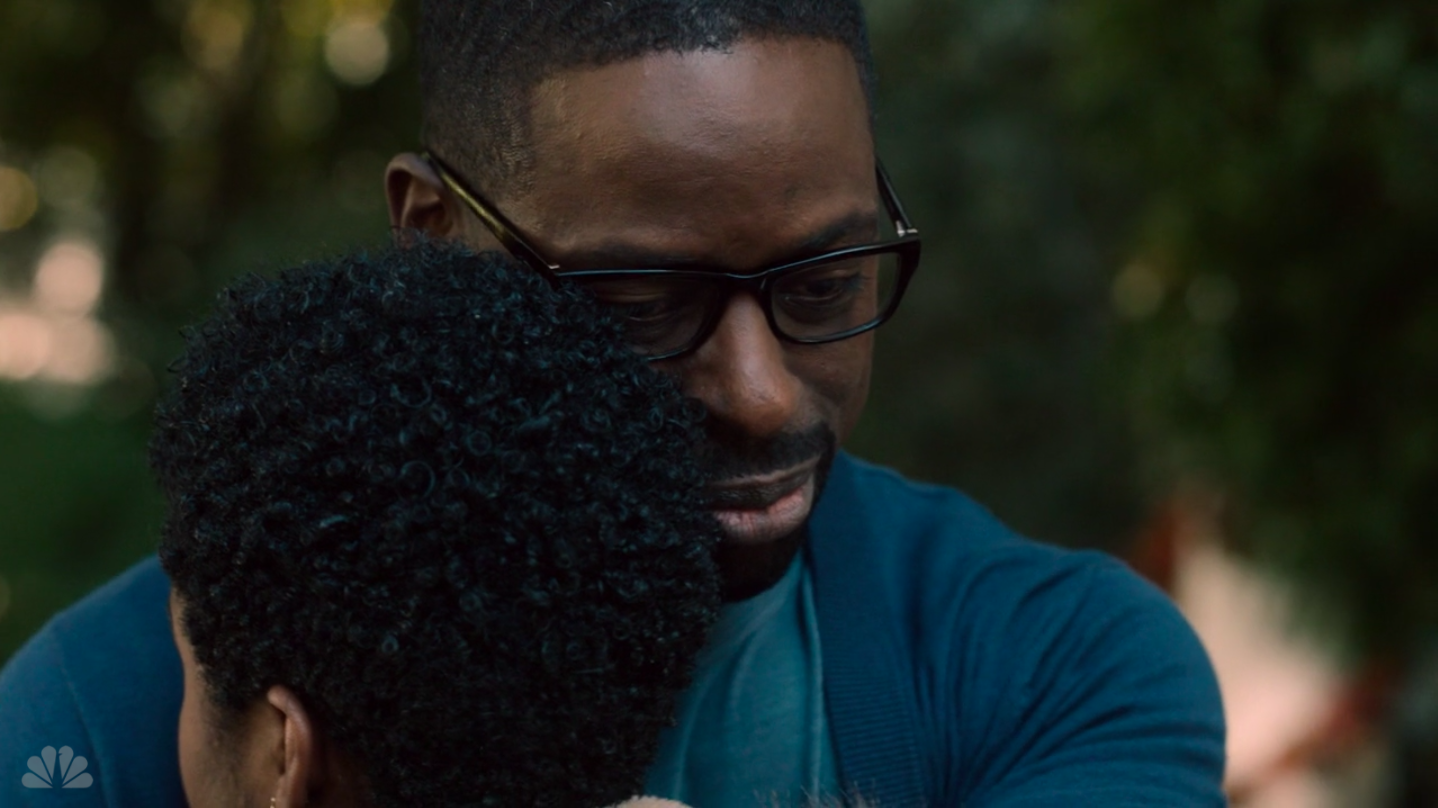
It’s hard to pick just one scene from This Is Us that made me cry this year because Lord knows every time Randall gets emotional on television, so do I. But watching Randall and Beth decide to become foster parents this season, after getting to know Randall’s birth father William last season and grieving his death, has caused me to tear up on more than one occasion.
Their first journey led Deja into their home, a teenage black girl from the hood who ended up in foster care after her mother was arrested for a crime a lover got her involved in. It took the family months of love and patience to get Deja to open up and work through the trauma she’d experienced in past homes. So when Deja’s mother shows up on their doorstep during the winter finale, demanding her daughter back after her release from jail, my heart dropped for my favorite couple. Even though it becomes clear that Deja returning home to her mother is probably for the best — which is why Randall and Beth ultimately decide not to fight it — having to say goodbye is hard for all parties involved, including myself.
The farewell starts off lighthearted, with Beth telling Deja to take care of her big beautiful heart and Randall asking Deja what he’s going to do without her there to call him out for being corny. But then Deja opens up to Randall to let him know that her desire to go back home doesn't mean she didn't like living with them — something they definitely needed to hear but assured her they knew, as parents are wont to do. And just when you think the moment can’t get any more bittersweet, Deja shocks everyone and allows Randall to hug her goodbye — showing she’d finally grown to trust him despite her past abusive experiences with men. Randall is shook. Beth cries. Deja’s mother watches, shocked as well. Sigh, that damn show really knows how to make you feel all the things. —S.O.
10. The opening sequences on Themyscira in Wonder Woman
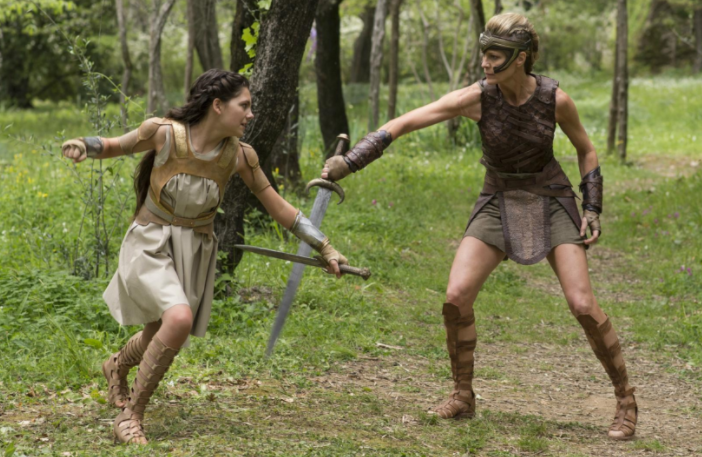
This is technically a sequence, not a scene. Or maybe just a...section of a movie. Regardless, I teared up approximately three minutes into Wonder Woman, when I realized that this movie was going to live up to some of my dreams for it. As little Diana watches the adult Amazons fight and starts to mimic them, my heart swelled and I started to lose my shit a little bit. This little girl, I knew, was the reflection of so many little girls around the world who would see this movie. It had taken literal generations to get there, and there is still a lot of progress left to be made, but in that moment, I was full of nothing but celebration. There is so much power in Themyscira, from its very concept as a women-only island to...well, the physical and mental power of the women who live there. Seeing the way they live and the way they fight lit something up inside me. And when Robin Wright's Antiope jumps off of a shield during battle? That’s a moment that is now permanently stained on my brain. And it welled me up good. —A.B.
11. The tragic end in Only the Brave
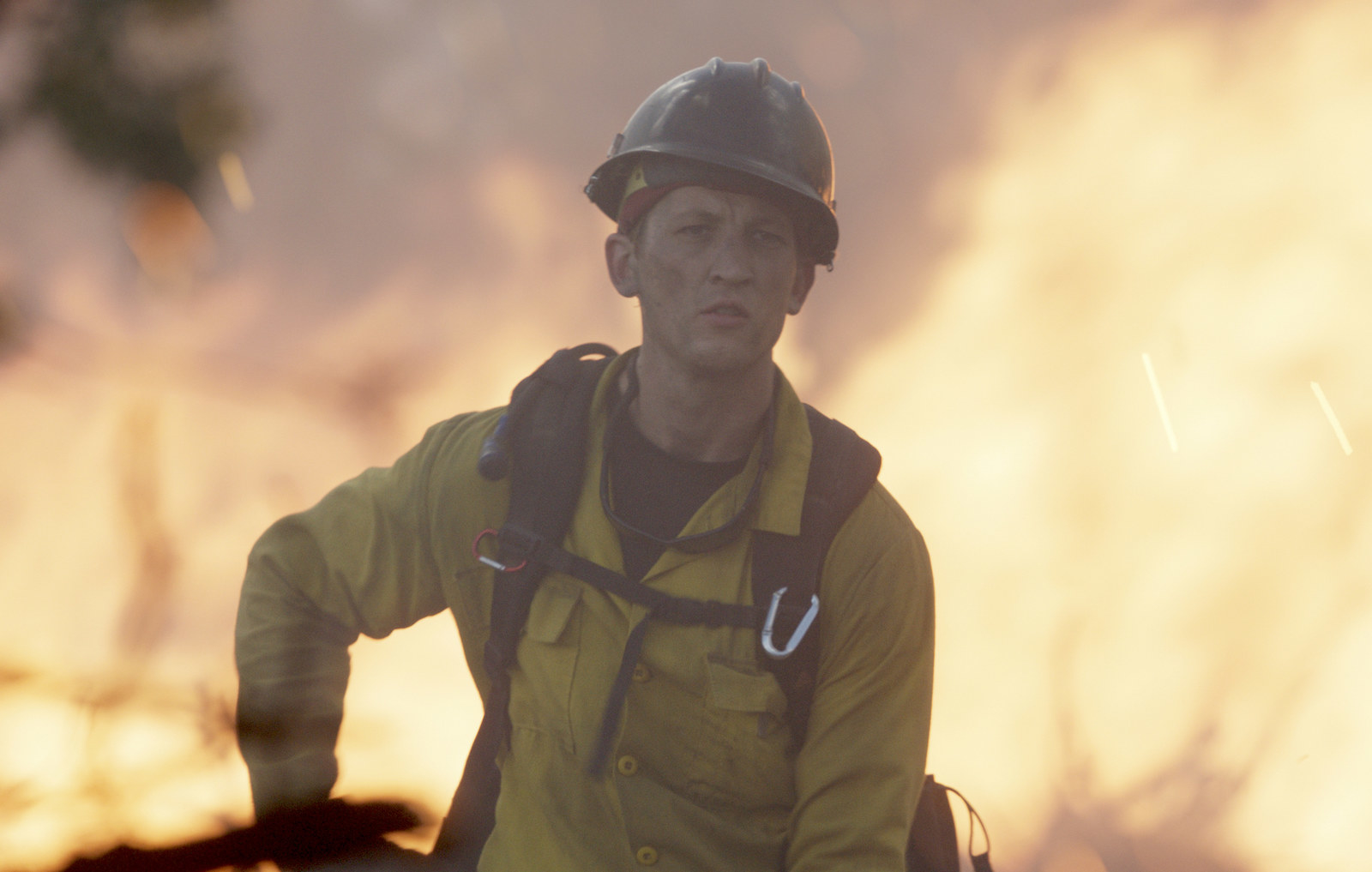
Barely anyone saw this film when it opened in October, perhaps because its subject — the true, tragic story of the Granite Mountain Hotshots, an elite firefighting crew based in Prescott, Arizona — felt far too real amid the stories of wildfires decimating Northern California. It's a real shame; there is scarcely a better time for this story given the wildfires still raging throughout California and elsewhere in the country.
After a particularly pernicious, fast-moving inferno kills 19 of the 20 members of the Granite Mountain Hotshots, director Joseph Kosinski (Tron Legacy) unflinchingly captures the aftermath, as the news begins to spread throughout the men's hometown. The families of the crew eventually congregate in a local school's gymnasium; all they know is that one of the crew has survived, and they have to endure an agonizing wait for news as to who it is. So when that firefighter — an ex-junkie so touchingly played by Miles Teller — steps into the gym, Kosinski cuts between the terrible realization on everyone else's face that their loved one didn't make it, and Teller's face suddenly awash with (even more) grief and guilt. It's almost overwhelmingly sad, and a powerful reminder of the sacrifices faced by firefighters, and the loved ones they leave daily, hoping they will make it back home. —A.B.V.
12. Nora’s story in The Leftovers
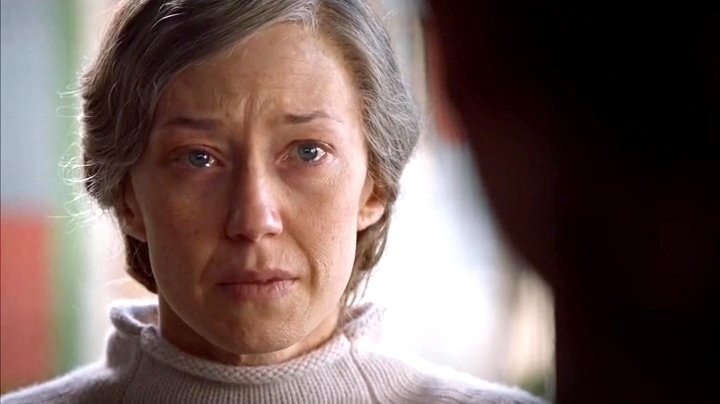
The Leftovers began with a mystery: Why did 140 million people, 2% of the world’s population, suddenly disappear? And where did they go? In the stunning series finale, we got what may be an answer to the latter, as an older Nora (Carrie Coon) tells Kevin (Justin Theroux) about her trip to the other side, where the departed have lived out their lives without the ones they left behind. Nora’s story, performed with impeccable restraint and emotional honesty by Coon, may be true — or it may just be a story. What matters more is the feeling behind it: The answer to the mystery ultimately comes down to faith. The final exchange between Nora and Kevin, both in tears, is overwhelmingly moving for the way it underscores that theme. “I believe you,” he tells her. “You do?” she asks, visibly touched. “Why wouldn’t I believe you?” he answers. “You’re here.” And the last line of the series: Nora’s quiet, poignant “I’m here.” Not since the Six Feet Under finale has an HBO series closer made me cry like that. —L.P.
13. The final scene by the fireplace in Call Me by Your Name
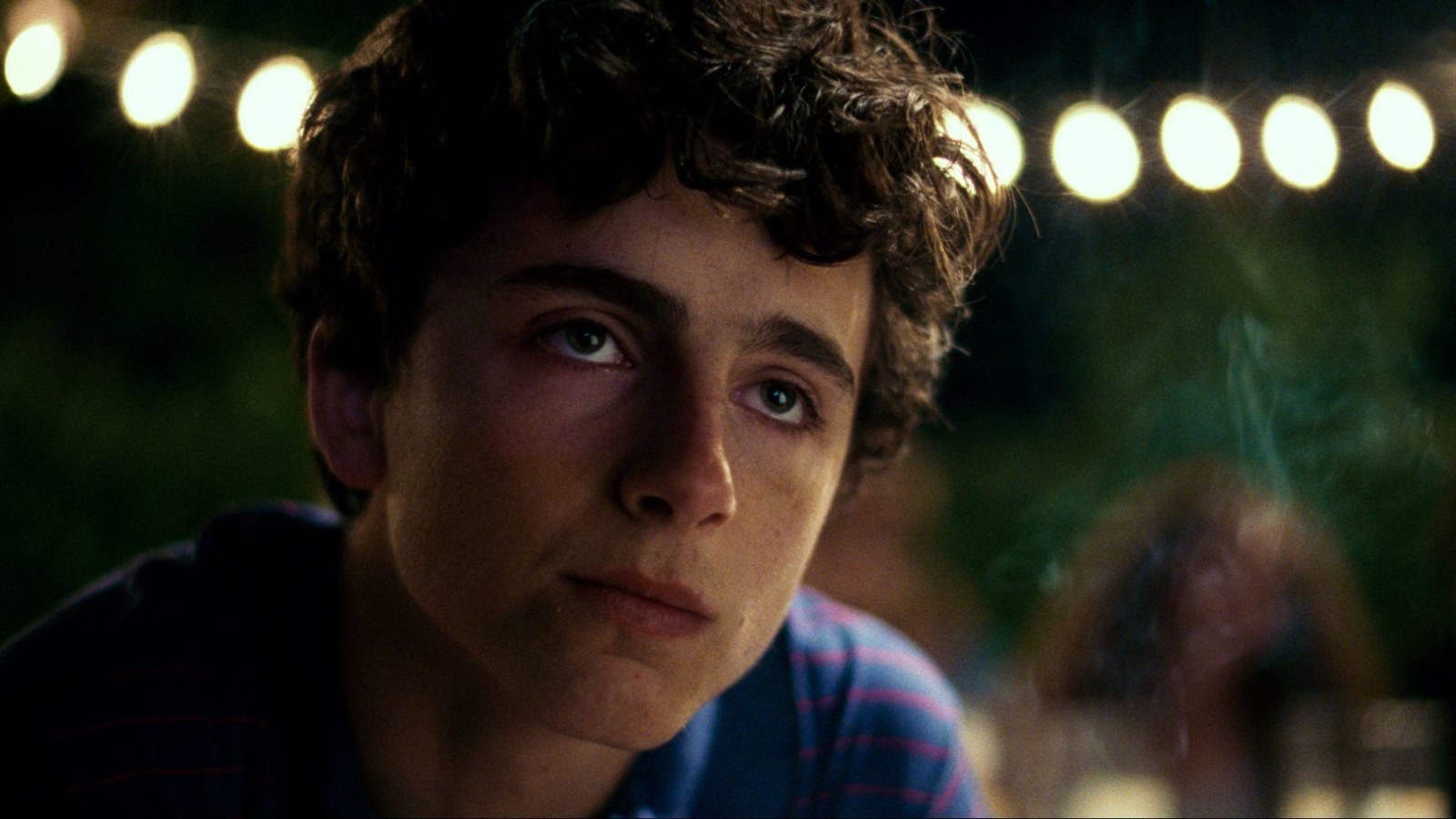
By the time we reached the last scene of Call Me by Your Name, my heart had already been fortified and ripped to shreds by this movie multiple times. By then, we are soaking in the aftermath of the fleeting, affecting relationship the film is centered on. Oliver (Armie Hammer) and Elio’s (Timothée Chalamet) summer together is over, and all that’s left is that supremely bittersweet feeling of being both heartbroken over the end of something and grateful that it happened at all. Enter Elio, fresh off a very painful phone call, staring into the fireplace. There’s no dialogue — only a wistful Sufjan Stevens song — and the scene rests entirely on Chalamet’s command of emotion. All you need is his face. It’s the whole thesis statement of the movie, wordless and in micro. It also lasts throughout the end credits, and it will make you want to stay in your seat and weep with it every time, just to spend a few more moments in that world. —A.B.
14. Edwards' departure in Grey's Anatomy
After a hundred years of watching Grey's, I will confess that the intern characters do sometimes turn into a blur. But Stephanie Edwards (Jerrika Hinton), who joined the show in fall 2012, was always a standout to me. There was her relationship with Jackson (he did her wrong!), and her excellence as a surgeon (she got both Meredith's and Amelia's stamps of approval). And that she had sickle-cell anemia as a child, a story Jo didn't believe at first, seemed to be right for the character. So when I learned Hinton was leaving the show, I became afraid Shonda Rhimes would kill Edwards in some sad way I wouldn't be able to bear — because she's done it before, and she'll do it again.
In the second-to-last episode of last season, Edwards basically blows up a rapist (long story) in order to save a little girl named Erin. During the whole finale, Edwards and Erin are in constant jeopardy as a fire (that Edwards caused by blowing up the rapist) spreads throughout the hospital. I was holding my breath in fear! But then they are finally found, and Edwards — true to form — is still performing CPR on the kid as they are being rescued, despite her own severe burns. She will not leave Erin's side.
Edwards is alive, though, so how is Hinton going to leave the show? Why, with a moving speech, of course! When Webber (whom I still call the Chief, and I'm not sorry about it) comes to visit her in the burn unit, she tells him she's quitting. She tells him she's spent her whole life in hospitals, and that having faced death, she wants to live her own life — "away from the monitors, and the blood, and the sterile gowns, away from saving other people's lives," she says. "I want my own. It's time I live my own." (This is when I went from merely crying to some sobs.) "You changed my life, Dr. Webber. You taught me how to take my past and find my path. Thank you." Goodbye, Edwards! —K.A.
